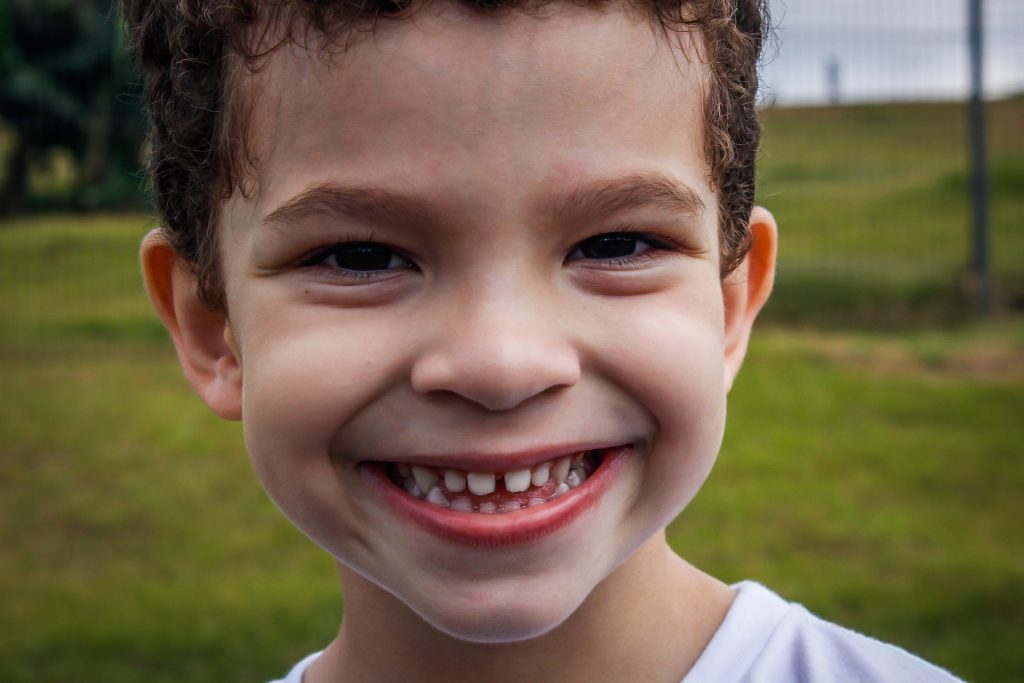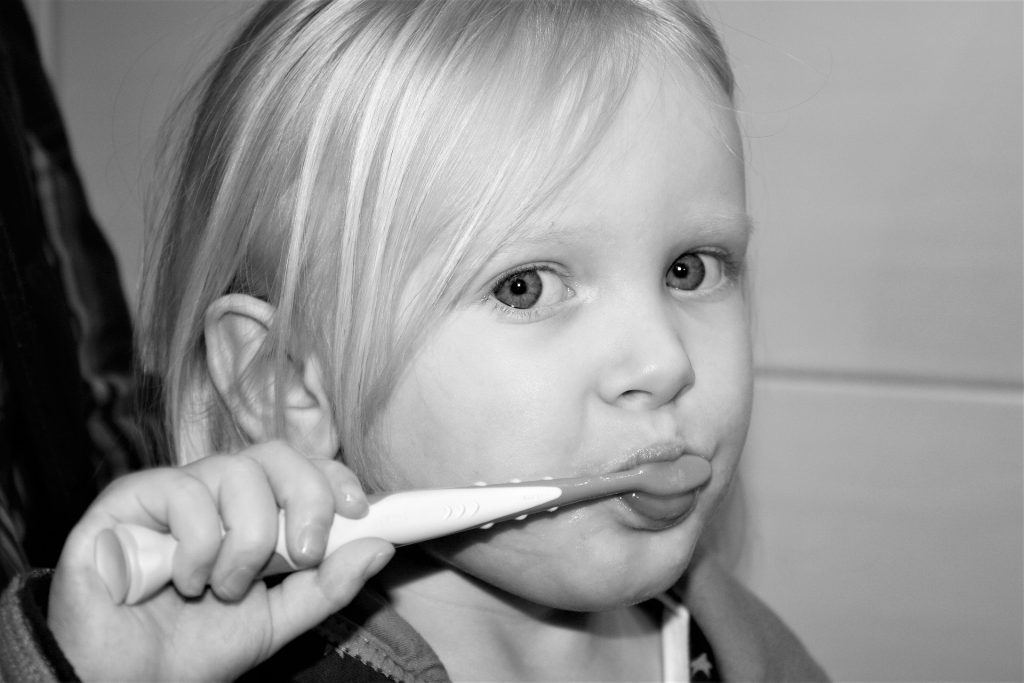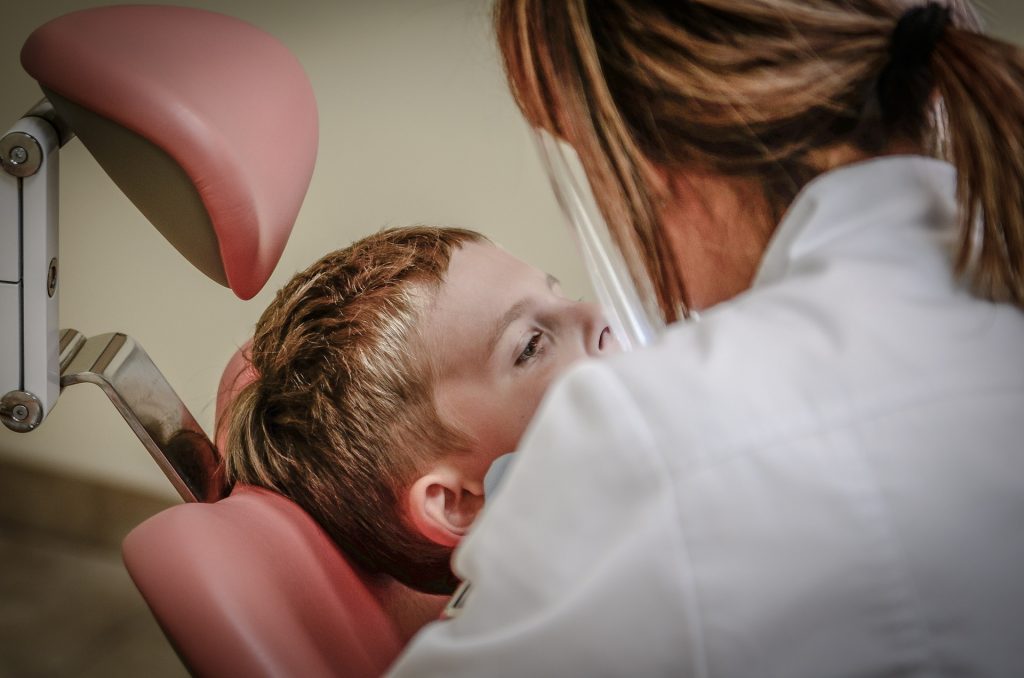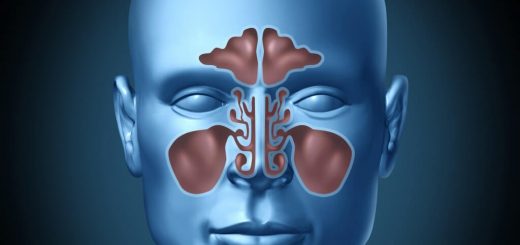Dental Hygiene for Your Child

If you want your child to have healthy teeth and avoid getting cavities or infection, you will have to create a routine to create good dental hygiene habits. Healthy teeth are important to children’s overall health. Not only do bad teeth affect their confidence level, but it also helps them eat. If the teeth are decayed, eating becomes difficult.
Below is a list of tips to make dental hygiene something fun:
Give your child’s teeth a healthy start
Since prevention is better than cure, dental hygiene should begin at a very early age. Letting your children choose their own toothbrush and toothpaste means that they get to pick their favorite color, character, and flavor. Because you are actively involving them, the whole process becomes more fun for them. Hence, the likelihood of them obeying increases exponentially.
You can use a timer or play a favorite song of theirs to get them to brush their teeth for at least 2 minutes. Let them know that they can stop brushing once the timer alarm goes off or once the song stops.
Also, sensitize them about the importance of oral health by talking about it with them and by reading them children’s books that mention dental hygiene.
Create a routine

When the child is still 1 or 2, use water and a soft child-size toothbrush to brush their teeth. You should do this at least twice a day. You may also add a small dab of toothpaste that does not contain fluoride. This extra precaution is helpful in case your child swallows the toothpaste by mistake. It is safe to switch to a toothpaste that contains fluoride once the child is old enough to understand they need to spit out the foam. Using only a small amount, teach your child to spread it on their teeth and gums. You can also have a doctor or dentist show them the right way to brush their teeth.
Having them get their teeth checked by an expert at such a young age will encourage them to schedule appointments willingly and regularly when they are grown up.
Once your child is around 7, you can let them use larger toothbrushes. Ensure that the toothbrush is switched out every 3 to 6 months or when the bristles look worn. Also, make sure that they brush their teeth for at least 2 minutes. At this stage, you can also teach them how to floss. Buy a floss that comes on a handle to make the process easier and have them floss at least once a day.
Cut down on sugar

Good oral care involves avoiding sugary treats. The sweeter the foods and drinks they consume are, the higher the risks are of them getting cavities. If you want them to decrease their intake of sugar, you should prevent them from having fizzy drinks, fruit juice, or sweetened drinks. Also, consider limiting sweet snacks and drinks between meals. Instead, swap those sweet foods for something much healthier, such as apple slices. Even if they do have sugar, make sure they brush their teeth afterward.
As your kids get older, you can also give them sugar-free gum as it helps increase the production and flow of saliva, thereby reducing plaque acid, strengthening the teeth and reducing tooth decay.
Dentist visit

The American Dental Association (ADA) recommends that children see a dentist around their first birthday. Pediatric dentists specialize in treating children’s teeth and will be able to detect any potential problem there might be with your child’s teeth. They can also give you pointers for proper oral care. Plus, if the child meets a dentist at a very young age, they will develop a good habit of getting regular dental checkups because they feel comfortable around doctors.
Since children’s teeth are hard to brush, they are always at risk of cavities. Cavities are basically holes that form in your teeth due to bacteria and germs build up in your mouth. Sweet food and drinks usually contribute to this problem as they eat away at your teeth. You should look out white spots or brown areas on their teeth for when checking for cavities. Schedule an appointment with your dentist if you do find any cavity! Also, contact your dentist immediately if your child has tooth pain, a tooth infection, a mouth infection or loses a permanent tooth.
You should also review the following with the dentist:
- Whether your child needs to take oral fluoride supplements.
- The type of toothbrush he/she would recommend for your child.
- If your child can use mouthwash.
- If your child is vulnerable to developing cavities.
- If it’s okay for your child to chew on sugar-free gums.
- If your child should wear a mouth guard if they play sports. Be sure to go through the types of mouth guard that they offer and choose one that best protects your child from injuries.



